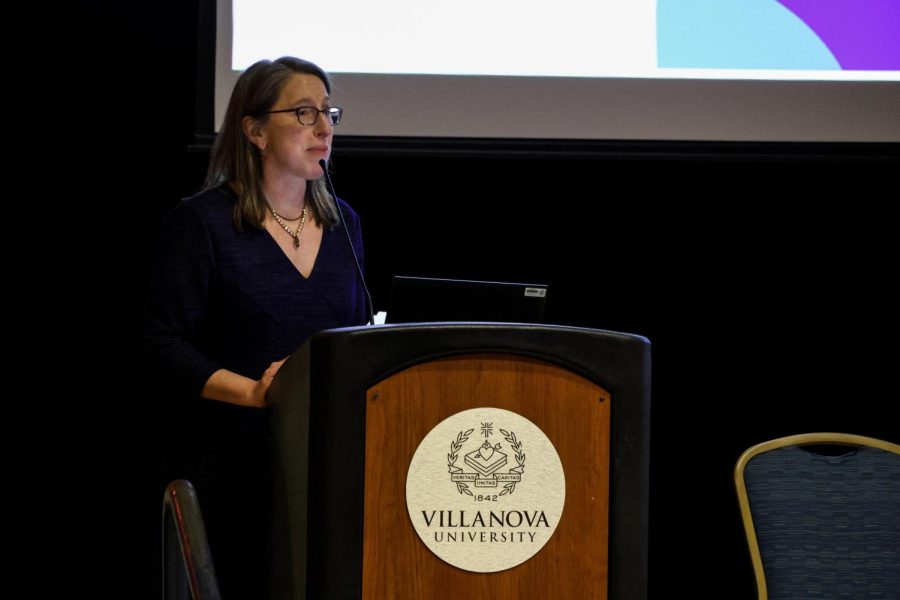Decarbonizing Villanova: A Town Hall on Fossil Fuel Divestment
February 1, 2023
Rodriguez, a pre-law student, explained how investment in fossil fuels unfairly exposes vulnerable populations to harm. She argued that Villanova’s role in this environmental injustice contradicts its community mission. Therefore, the university has an obligation to divest from fossil fuels. Rodruiguez then urged Villanova to make information on their endowment funds and investments more visible and transparent. A component of environmental equality is information accessibility.
Mengistab highlighted the intersection of human health and the environment. As a registered nurse, she conveyed the dangers of climate change on communities that experience the greatest effects of polluting industries. She explained how “fossil fuel generated air pollution and climate change linked to $280 billion in healthcare costs.” Food insecurity, severe weather and air pollution are just some of the consequences of fossil fuels that cause these health risks. Divesting endowment from fossil fuel industries is necessary to mitigate the health concerns disproportionately impacting frontline communities.
The meeting then transitioned to models of renewable energy, with Singh providing statistics on the cost and effectiveness of renewable energy sources. He argued that wind power and solar energy are being deployed globally and may be a more affordable energy source. He suggested that Villanova has the money to invest in these renewable energy sources.
Since the issue of divestment raises financial concerns, professors in the Villanova School of Business shared their perspectives on fossil fuel investment. Doh stressed the importance of socially responsible investing. He expressed the necessity of not only considering financial return, but also the social and environmental implications of investments. In this vein, Chaimanis explained how investment in fossil fuel is risky with stranded assets, government regulations and the legal consequences of high emitters. He argued that “renewable energy investments already are a massive and growing place to invest energy.” As such, divestment may be in the financial interest of Villanova.
Miscimarra, the student organizer of Marquette University’s divestment campaign, shared his experience with leading a successful movement. He urged the Villanova community to not accept the “people are not ready” excuse, but rather continue with social media campaigns, educational initiatives and activism. He explained that with Villanova and Marquette’s similarities, divestment is just as possible at Villanova as it was at Marquette.
Like most college campuses, Villanova has a legacy of fossil fuel investment and carbon emissions. In a small move towards sustainability, Villanova pledged to achieve carbon neutrality by 2050. It was the general consensus of the town-hall speakers, however, that this plan is not efficient or quick enough to combat climate change. Instead, they agreed that divesting Villanova’s endowment fund from fossil fuels is the most valuable course of action. Ultimately, the presence of students, faculty and alumni in tandem with such effective arguments made the town hall meeting a tremendous step towards divestment.
Link to Petition: “De-carbonize Villanova- A Petition for Action after Town Hall on Fossil Fuel Divestment”











